These days, unfortunately, the destiny rolled dice once again and we’ve lost one of the best scientists of our time. As usual, news and tabloids started to race who will publish more about Stephen Hawking’s life, family or friends, trying to dig some gossips that no one has heard before, just to earn enormous 0.02$ per click. I was wondering how is possible that so many people are suddenly interested for someone who lived quietly, without scandals, doing something that isn’t so clear and understandable to average human ? Inspired by Hawking, three years ago there was a British biographical film “Theory of everything”, which was nominated for four Oscars and had a great reception at theatres and that’s another fact speaking in favor of Hawking popularity. On the other side, thanks to Elon Musk, Tesla is raised from the dead and got into the focus of the media and started gaining interests for his forgotten projects. On Discovery Channel or National Geographic Channel we have Michio Kaku and Neil Degrasse Tyson as a superstars of shows about physics and the Universe. We all know that smart is a new sexy, but wait - from where and when it all has started ?
Years before Einstein, science (especially physics) wasn’t so close to ordinary people. It was considered that it’s reserved for introverts who do crazy experiments and write tons of formulas trying to achieve “something”. If we realize that geniuses like Oliver Heaviside who painted his nails into pink color or Nikola Tesla who claimed that could talk with lightning and that he was in contact with aliens, were just one of representatives, it was easy for Einstein who was quite normal to win sympathies of regular people who needed some link with high intellectual social layer. Albert Einstein was that missing link between those two worlds. With his eccentric look, cartoonish hairstyle and charisma he was established as a symbol for physics after winning the Nobel Prize in 1921.
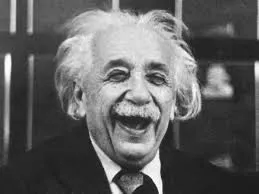
Hmm... what he actually did?
First of all, we should break down couple of myths:
- He was a bad student
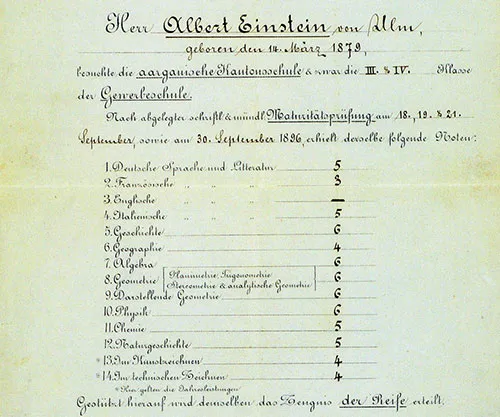
No he wasn’t. Actually he was amazing at maths and physics since the young age. At the age of twelve he understood algebra and geometry and by the age of 14 he was excellent in integral and differential calculus. One of the facts that confused many biographers is that the grading system at Aargau Cantonal School, where he attended, changed in one moment so the “1” which was the best mark became the worst mark and young Albert ended up with ones in mathematics and physics in the first semester and with sixes in the second. Also, the fact is that he failed later his university entrance exam, but the thing that’s not often mentioned is that he was younger for about two years than the most attendants and also on that test was Swiss history, for which he wasn’t prepared by his German high school.
- He took all the credit from his wife, Mileva Maric, for his discoveries
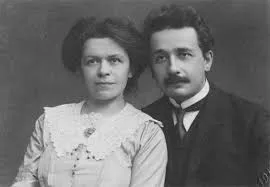
Mileva was the only woman in his class at the Zürich Polytechnic and after few years of friendship, they fell in love. Thing that sparked conspiracy theories is that Einstein said in one letter “How happy and proud I will be when the two of us together will have brought our work on relative motion to a triumphant end”! There’s no doubt that Mileva was skilled in mathematics and physics, but however there is no any proof to this day that Einstein stole any work from her.
He was a game changer!
While working at Swiss Patent Office in Bern he started to question Newtonian mechanics, something that is base for studying the motion of bodies, founded by the great Isaac Newton in his famous three laws of motion. That was something unquestionable and absolute until suddenly some kid in his middle 20s started to explore it and trying to make it “more perfect”. Simply said, Einstein tried to make a revolution in a field where no one ever tried to make a doubt and which theories were old about hundreds of years. Yeah, of course, everyone thought that he was a little bit crazy and they didn’t pay much attention to his effort. But then, at the age of 26, he published Annus Mirabili papers – famous four papers where he claimed that we can’t consider light as a wave and instead of that he suggested small particles called photons – and boom, that was a birth of modern quantum physics.
Also in those four paper he presented his special theory of relativity and the world was introduced with the most famous equation to this day - E = mc2. In his theory he modified Galilean transformation and Newtonian dynamics and told that something which is used to describe light, years before him, called luminiferous aether, was just - unnecessary.
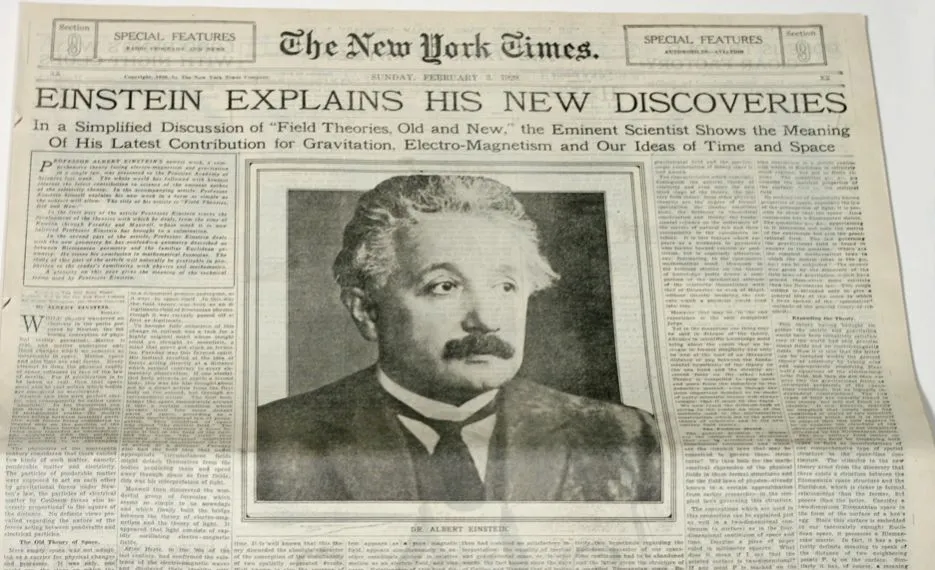
Ten years from that, he was developing his general relativity theory and finally revealed his crazy idea about space-time warping by the mass and predicted gravitational waves which existence was confirmed exactly hundred years later, in February 2016. We can see on that example how much he was in front of his time, but that's such a nice coincidence for a man who said that time is relative. Yes, his idea was crazy, but it worked!
Over the night, classic physics was changed and he became international sensation and the synonym for word genius.
Can you imagine some scientist today to be stopped on the street to take a photo with the fans? Einstein was suddenly so famous that people were casually approaching him and asking him to explain his theory to them. Popularity among people and the beauty of his theory maybe can be explained by its simplicity but at the same time amazing level of abstraction and the fact that he was “thinking out of the box” and searched where no one else before wanted. He had that philosophical approach to the science, something that most of scientist doesn’t have. Because of all that, idea behind that theory was so understandable to “regular people”. He told the Chicago Daily Tribune in May 1921 “Anyone who has had sufficient training in science can readily understand the theory. There is nothing amazing or mysterious about it. It is very simple to minds trained along that line, and there are many such in the United States.”
After winning his Nobel Prize (for his services to theoretical physics, not for his famous theory of relativity, as many people think) he continued his research on general relativity and the wormholes and spent postwar years teaching at Princeton.
Einstein’s legacy?
It’s hard to count all things that came from his scientific accomplishments, so I’ll mention his non-scientific impact he had on popular culture that no one scientist had before him. He wasn’t afraid to talk about politics and had a strong criticism of The World War situation. He wrote the letter to President Roosevelt where he explained his fear of Germans making the nuclear bomb but refused later to work on famous Manhattan Project, due to his principles.
He was even offered to be a president of Israel in 1952 and he turned it down. At the time of big racial segregation in America, he wasn’t afraid to talk in public about rights of Afro Americans, calling the segregation as “a white man disease” and showing his progressive liberal attitude. In 1952 new element was discovered and named einsteinium in his honor.
Einstein became and remained an inspiration to many novels and films to this day. His styling was so impressive that when today someone says about somebody that is a scientist, we automatically imagine man who looks like Einstein. Magazine Time named him as “Man of the Century” and if you don’t believe me about his cultural impact, just google “mad scientist” and look at first ten pictures – to whom it reminds you? Have you ever thought about how is amazing when you want to say about somebody that is a genius, you say something like “so who are you hmmm? Einstein?”
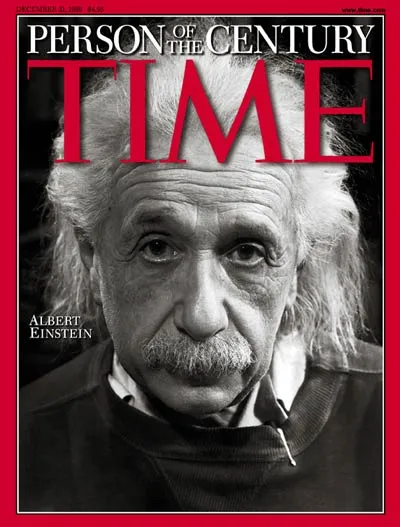
When he died, the pathologist of Princeton Hospital removed his brain during the autopsy, hoping that neuroscience can decode in the future secret of his intelligence. Today, 46 small parts of Einstein brain could be found in Mütter Museum in Philadelphia as a part of permanent exhibition.
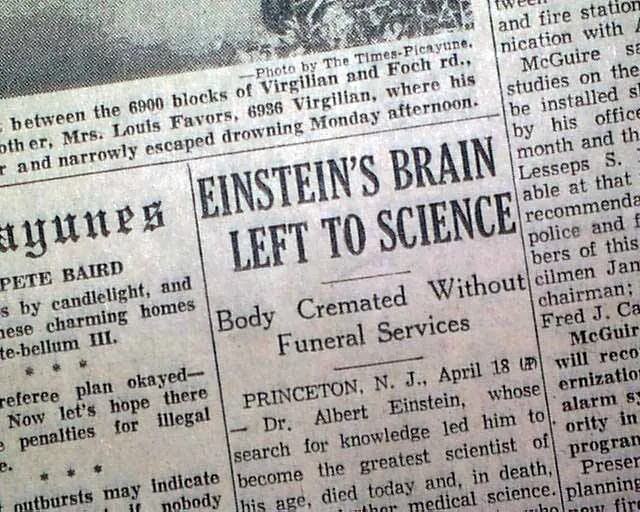
Probably, there are many people today who have maybe much higher IQ than Einstein, but let’s say that intelligence is something like hand of cards which you get when you are born and your job is to play with it on the best way. Often, doesn’t win one who has the best cards, but the one who plays the best in the game and Einstein was surely one of the best players we ever seen and he will remain in the top of the list for a long time.